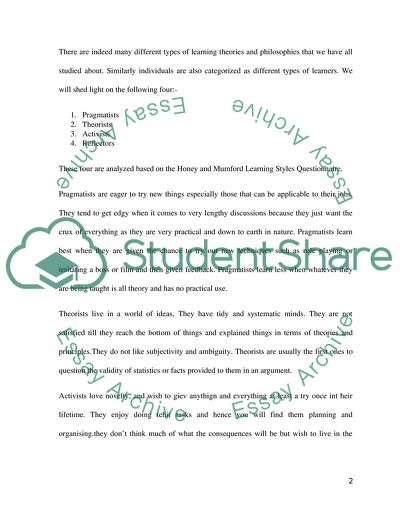Cite this document
(Personal and Professional Development: Theory of Learning Essay - 3, n.d.)
Personal and Professional Development: Theory of Learning Essay - 3. Retrieved from https://studentshare.org/education/1746246-personal-and-professional-development
Personal and Professional Development: Theory of Learning Essay - 3. Retrieved from https://studentshare.org/education/1746246-personal-and-professional-development
(Personal and Professional Development: Theory of Learning Essay - 3)
Personal and Professional Development: Theory of Learning Essay - 3. https://studentshare.org/education/1746246-personal-and-professional-development.
Personal and Professional Development: Theory of Learning Essay - 3. https://studentshare.org/education/1746246-personal-and-professional-development.
“Personal and Professional Development: Theory of Learning Essay - 3”, n.d. https://studentshare.org/education/1746246-personal-and-professional-development.


